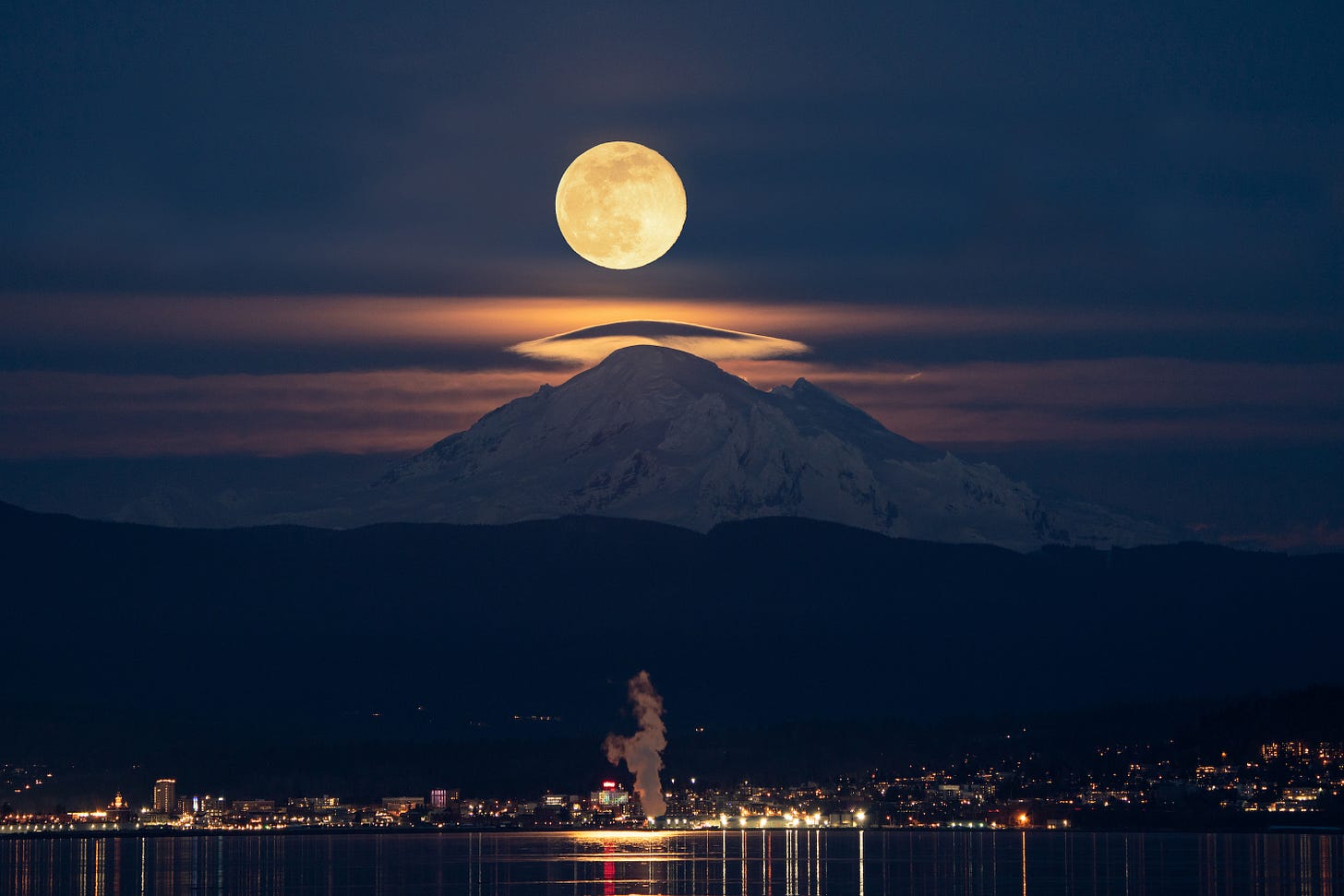Moon
might carry the most evocative combination of vowel and consonant sounds in the English language . . .

In the human imagination the earth might be where the sun illuminates everything we need to see and name, but the moon has always embodied the task of carrying the unnameable, and lives according to its own hidden urgencies, which in our daylight hours are forgotten or only half revealed.
MOON
might carry the most evo…



